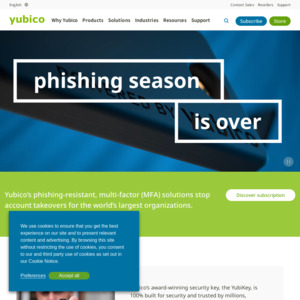Currently the best option for account security if a website offers support. There is an Android app to support normal Time based 2FA(TOTP) which can be unlocked via NFC.
I recommend you purchase 2, set them both up and safely/securely store the spare.
You can order up to 3 'individual' keys, just add them seperately to your cart. (not as a pack)
This deal may apply to the other Yubikey variants, let us know if it does.
The NFC version seems ideal for use with mobile devices.


so, include postage or not ?